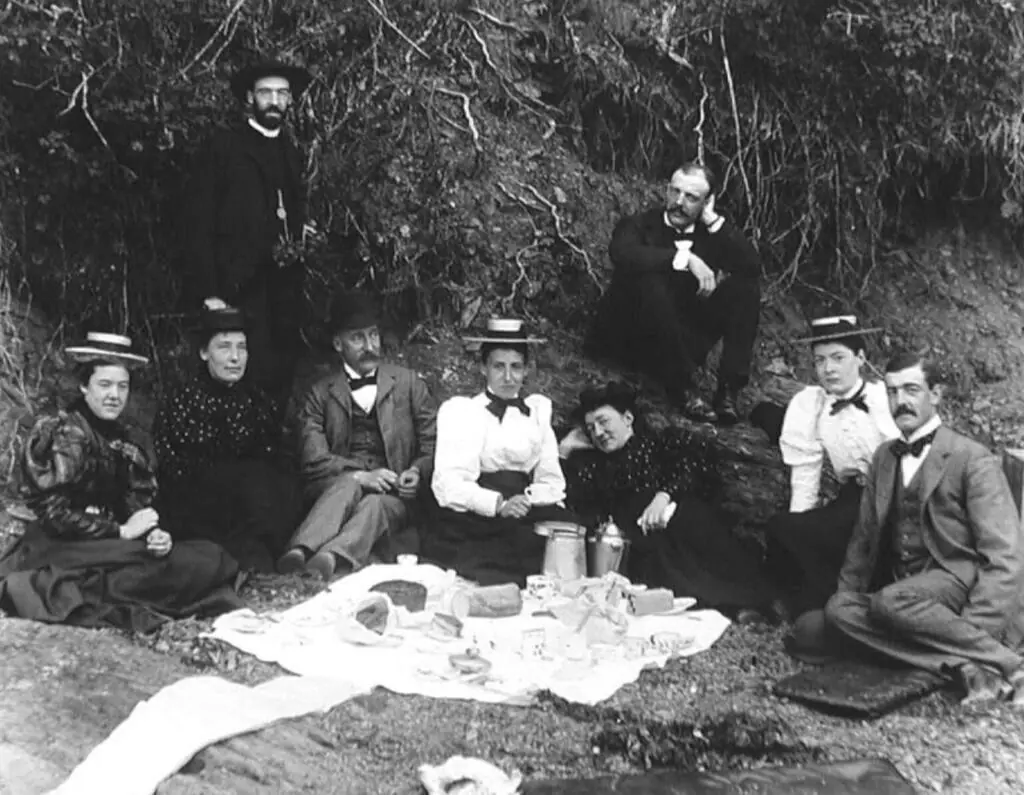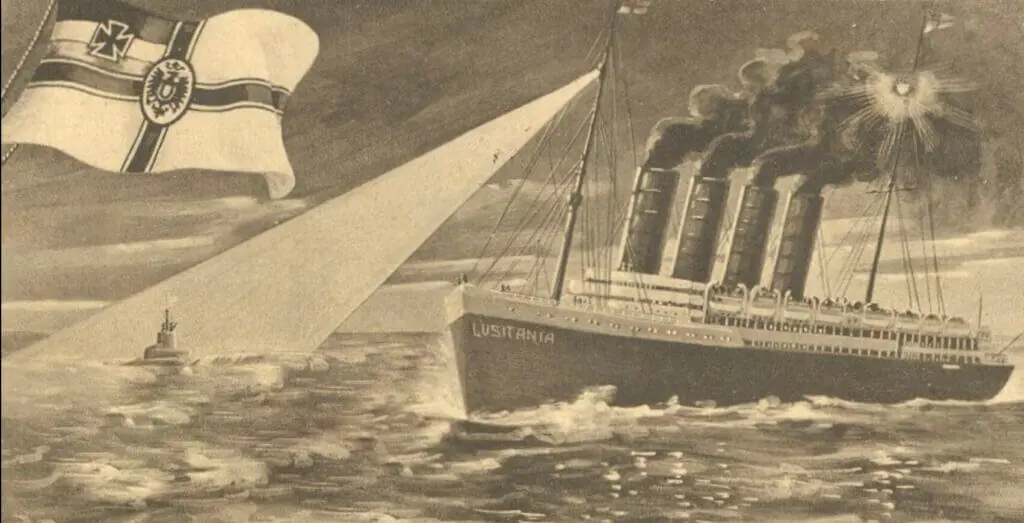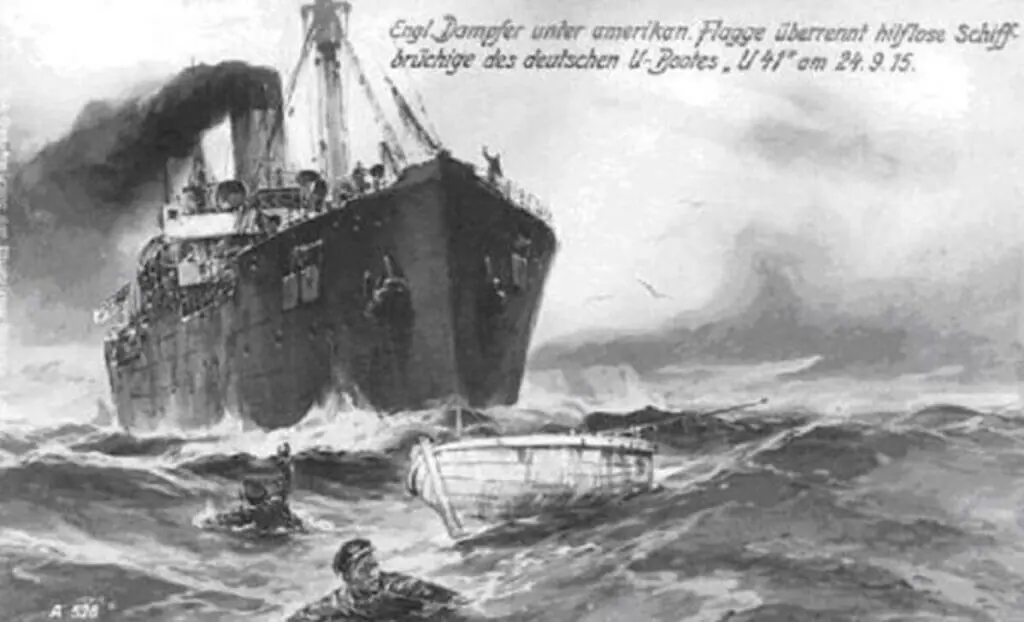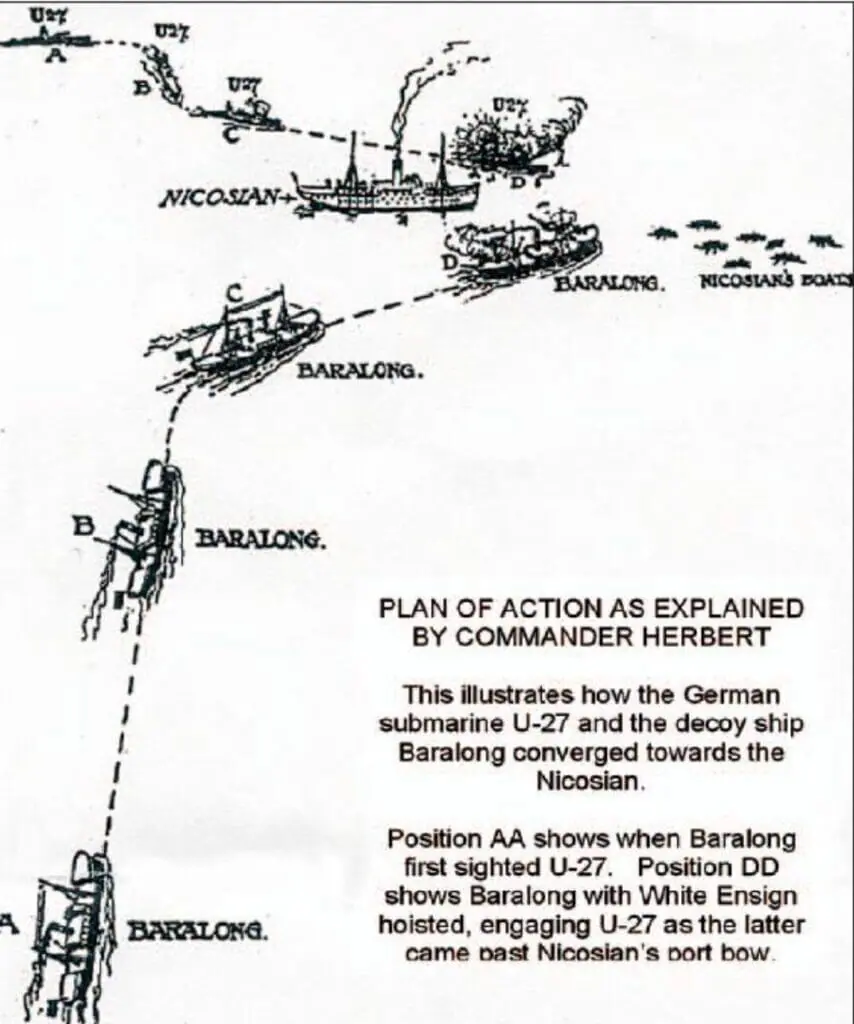 We drape our wars in a thin layer of respectability, but we are still just bloodthirsty animals at heart.
We drape our wars in a thin layer of respectability, but we are still just bloodthirsty animals at heart.Estimated reading time: 11 minutes
War is the most uncivilized of human pursuits. If you think about it, it is mind-boggling we’re still doing it. One nation-state gets cross with another, and the next thing you know we are slaughtering each other’s young folks wholesale. It seems there’s not such a grand gulf between us and the beasts of the fields after all.
Table of contents
We couch the practice underneath a veneer of respectability. Our finest strategists earn advanced degrees in the prosecution of modern war, and our military-industrial complex drives technical innovation on an unrivaled scale. And yet at its heart, the true mission of the military is to simply rip the very life out of other human beings who would, in general, really sooner not be there.
Martial Philosophy
If I’m coming across as a pacifist, I’m not. The world is a dangerous place, and our adversaries are frankly insane. Whether it is ISIS, Hamas, Boko Haram, al Qaeda, or the Russians you happen to see over your rifle sights, you’d best be metaphorically ready to pull that trigger. Rest assured were the roles reversed those guys would not be particularly morally encumbered.
It is, however, essentially impossible to excise emotion from that equation. No matter how civilized we claim to be, the very act of war is an innately barbaric unrestrained thing. It is for this reason I am philosophically opposed to embedded reporters in war zones.
War is ugly, horrifying, and bad. Our young studs have enough on their minds without having to fret about their actions being broadcast into living rooms across America. If it is important enough to go to war I think we should just get out of the way and let our warriors take care of business. Turns out I’m not the first guy to feel that way.
Setting the Stage For Baralong
World War 1 was a transformational event in human history. This vast conflict was the planet’s rude introduction to combat on a truly industrial scale. The learning curve was steep.
Previously it was a fairly straightforward thing to fractionate war into combatants and everyone else. On 21 July 1861, droves of civilians showed up with food to spectate during the First Battle of Bull Run. They arrived expecting a gay holiday, initially referring to the ominously pending event as the “Picnic Battle.”
The end result was more than 4,000 killed and wounded and an irretrievable loss of innocence for all involved. Come World War 1, all pretense of civility was gone. Technology had rendered chivalry and restraint obsolete.
The U-boat Scourge
In no place was this lamentable reality more starkly manifest than in the burgeoning art of submarine warfare. The concept of the combat submarine was brand spanking new, and the Kaiser’s Navy led the technological charge. Now a warship could approach a target submerged and strike from a position of stealthy advantage.
It also became increasingly difficult to differentiate between men of war and transport ships fat with civilians. Sometimes those transport vessels had their staterooms packed with civilians and their holds full of war materiel. The end result was the perfect recipe for tragedy.
That tragedy struck in May of 1915 with the sinking of the RMS Lusitania by U-20, a German U-boat. The Lusitania was a passenger liner on its 202d transit across the Atlantic carrying some 1,962 passengers and crew. U-20 centerpunched the fast liner with a single torpedo just beneath the wheelhouse.
The massive ship sank eighteen minutes later, carrying 1,199 souls to the bottom with her. That number included a great many British women and children as well as 123 Americans. Once word of this attack made the rounds, the sailors of the Royal Navy were disinclined to show much mercy to German U-boat men.
The Rules Change
This bloodlust was fairly institutionalized. In the aftermath of the Lusitania sinking, two officers of the Admiralty’s Secret Service branch approached Lieutenant Commander Godfrey Herbert, skipper of the British Q-ship HMS Baralong, saying, “This Lusitania business is shocking. Unofficially, we are telling you…take no prisoners from U-boats.” Herbert took his new directive quite literally.
At this point in the war, the Q-ship was England’s best weapon against U-boat attacks. These heavily armed merchant vessels masqueraded as helpless transports to lure U-boats in close before exposing hidden guns and sending many a submarine to the bottom. Torpedo technology was still in its infancy, so much of a U-boat’s firepower came from its deck guns. U-boats would often approach a target ship via stealth and then surface to prosecute the attack. Q-boats were designed to feed that right back to the Kaiserliche Marine.
Personalities In the Baralong Incident
LCDR Herbert was not your typical Royal Navy ship’s Captain. He purportedly encouraged his men to terrorize the countryside in drunken binges while on shore leave.
In one sordid incident in Dartmouth, several of his sailors destroyed a local pub and were arrested. Herbert paid their bail personally and then returned to sea as soon as everyone was accounted for. He also inexplicably insisted on his crew calling him “Captain William McBride” to his face.
In August of 1915, a German U-boat sank the liner SS Arabic while within 20 miles of the Baralong’s patrol area. The Baralong made haste to the site but failed to recover any survivors. This left Herbert’s crew in a proper state. Meanwhile, about seventy miles away, the German U-boat U-27 had intercepted the British steamer Nicosian.
Battle is Joined
The skipper of U-27, Kapitanleutnant Bernd Wegener, led a six-man boarding party to search the Nicosian. They discovered war materiel and 250 American mules making the transit over to assist with the war effort. As a result, Wegener ordered the crew off the Nicosian and prepared to sink her with his deck guns.
HMS Baralong arrived at the site of this little nautical dustup intentionally flying an American flag. Under the false guise of neutrality, the Baralong maneuvered within 600 yards of the U-boat, claiming their mission was to rescue survivors. U-27 held fire and assumed a course parallel to the stricken Nicosian.
Meanwhile, the Baralong adopted an identical course on the opposite side of the doomed British ship. Once the Nicosian effectively masked the Baralong, Herbert exposed his guns and prepared for surface action. As soon as she cleared the Nicosian, the Baralong opened up with everything she had.
Raw Firepower Trumps Absolutely Everything
Baralong was equipped with three big 12-pounder guns. These quick-firing 76mm cannon could fire a blistering 15 rounds per minute. Their withering fusillade overwhelmed the wallowing U-boat in short order.
Once the engagement was decided, Herbert called for a cease-fire. However, his crew ignored the order, incensed as they were over the recent loss of civilian life to the cowardly U-boats. The Baralong got off 34 rounds for the U-boat’s one. Now thoroughly ventilated, U-27 rolled over and began to sink.
Up until this point, things were sort-of unfolding according to accepted convention, the confusion over the spurious American ensign notwithstanding. However, the Nicosian crew was goading the British sailors from their lifeboats, shouting, “If any of those bastard Huns come up, lads, hit ’em with an oar!”
A Dark Turn
Twelve German sailors escaped the stricken U-boat before it slipped under. These were the deck gun crews and those men on duty in the conning tower. They dove into the water and swam for the Nicosian, now occupied solely by the German boarding party.
Herbert later claimed at an inquiry that he feared the Germans would scuttle the defenseless civilian vessel. As a result, he ordered his men to gun down the U-boat survivors with small arms. They did so willingly, killing every last one of them as they floundered in the sea.
Herbert then dispatched his 12-man contingent of Royal Marines in a small boat under a Corporal Collins to the Nicosian to root out the surviving Germans. As they departed the Baralong, Herbert publicly ordered them to, “Take no prisoners.”
It Gets Worse For The Germans
The Germans had taken refuge in the freighter’s engine room. Collins and his Marines cut them down to a man. Some reports had Kapitan Wegener having hidden in a bathroom. The Royal Marines supposedly broke down the door with their rifle butts, and the German officer dove into the water. Collins then purportedly took careful aim with his revolver and shot the German U-boat skipper through the head.
In the aftermath of the massacre, the British Admiralty ordered the report suppressed. However, there had been Americans among the Nicosian’s survivors in the lifeboats, and they spoke with newspaper reporters upon their return home. The sordid details of the exchange soon circled the globe.
Not unexpectedly, the Germans had a veritable conniption, threatening a variety of unspecified reprisals. However, the two nations were already at war. This seminal event did, however, drive the German Navy to abandon the accepted Prize Rules wherein some modicum of restraint was shown toward target crews and embrace unrestricted submarine warfare. Countless more subsequently perished as a result.
Damage Control On the Baralong
To help protect the Baralong and her crew from the Germans should she ever be captured, the ship was renamed HMS Wyandra. The name Baralong was deleted from the Lloyd’s Register, and the vessel was assigned new duties in the Mediterranean. Regardless of their having committed unfettered murder, the crew of the Baralong along with her Captain were awarded a 185-pound bounty for having sunk the German U-Boat U-27.
It has been said that, in war, the victors write the history. This is undoubtedly true. LCDR Herbert and his crew certainly committed a war crime in machinegunning the helpless survivors of U-27 after crippling their vessel. However, the Germans were sinking ocean liners filled with civilians at the time. As a result, nobody really much cared.
 LCDR Herbert was an unscrupulous brigand who managed his warship beautifully. He approached the scene of the battle under a flag of truce.
LCDR Herbert was an unscrupulous brigand who managed his warship beautifully. He approached the scene of the battle under a flag of truce.